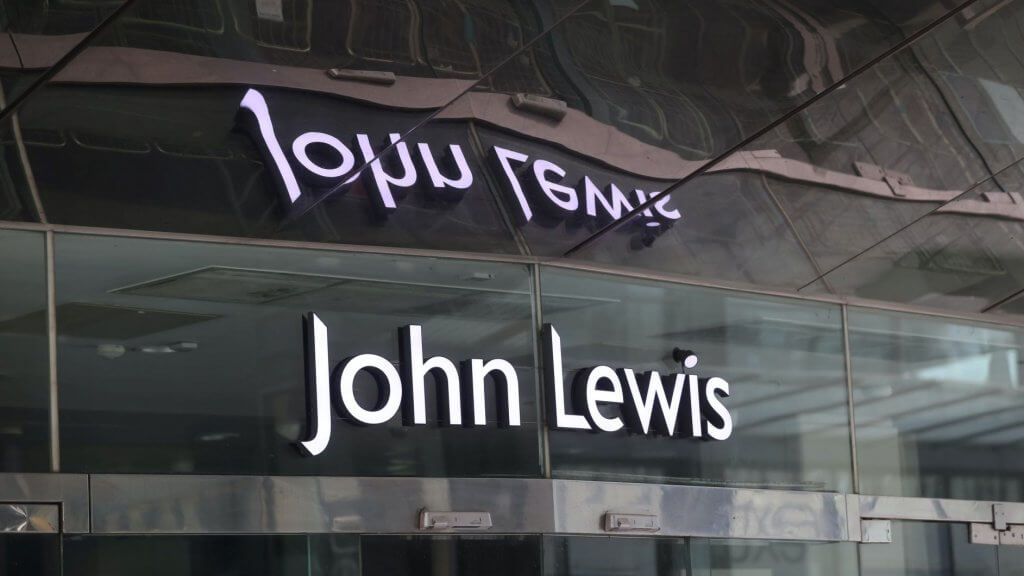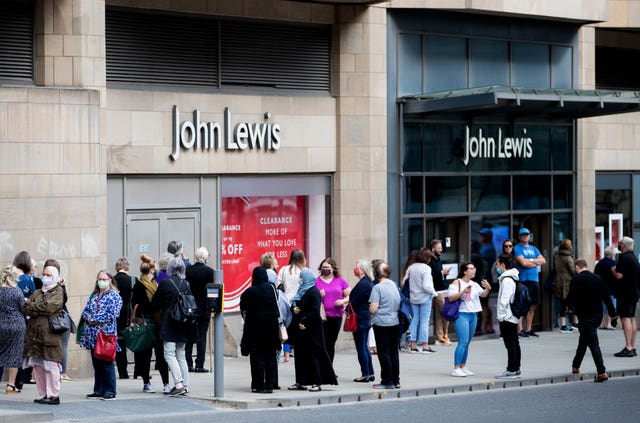John Lewis Partnership: What Next For The UK Retail Giant?

The John Lewis Partnership (JLP) has revealed the impact of the tumultuous past six months after the pandemic forced its stores to shut their doors and accelerated a major shift in shopping habits.
Dame Sharon White, chair of the group, said consumer habits which might have taken five years have happened over the past five months.
The business suggested the pandemic is also due to affect its highly awaited Christmas advert, but it expects trading over the peak shopping period to remain strong.
After tumbling to a mammoth £635 million loss and announcing permanent store closures, the future of the retail giant has come under increasing scrutiny.
Here we answer key questions regarding what the future holds for the high street stalwart.
Today we published our half-year results covering 26 January to 25 July 2020. Read more here https://t.co/2guotlCpBB pic.twitter.com/S0qf7RPd4N
— John Lewis Partnership (@jlpartnership) September 17, 2020
What is the future of the group’s stores?
The group has reduced its store portfolio in recent months as more shoppers have moved online, with John Lewis earmarking eight stores for closure in July, with 1,300 jobs at risk.
Waitrose has also trimmed its store estate, announcing on Tuesday that it will close four of its stores, with 124 workers facing redundancies.
The closures highlight the company’s increased focus on online operations, which has been accentuated by the pandemic and lockdown restrictions.
JLP said its hefty £635 million pre-tax loss for the six months to July was predominantly caused by a £470 million write-down on the value of its stores.
It said the write-down was specifically related to a decrease in the amount of online sales it believes are driven by stores.
“Before the crisis we believed that shops contributed around £6 of every £10 spent online – we now think that figure is, on average, around £3,” said finance boss Patrick Lewis.
The company said it has explored ways to get the best value out of its stores and therefore applied for planning permission to allow it to adapt some of the space in its large Oxford Street store, in a move which could create new office areas.
How will John Lewis perform over the rest of 2020?
John Lewis has seen trading continue to recover since reopening stores but said that current sales remain around 15% lower than pre-Covid levels.
However, Pippa Wicks, executive director of the John Lewis business, said the company is hopeful that sales over the peak Christmas and Black Friday period will be at least in line with last year.
She said: “It’s very early to say but current momentum has been very positive. We’ve seen really strong demand for Christmas lines, which is why we’ve already opened the Christmas store online.
“Some shoppers have not been able to go on holiday or saved money through not travelling to work, which could be positive for spending.”
Ms Wicks added that homeware and technology sales are predicted to be particularly strong, while smart clothing could be impacted.
What do we know about this year’s Christmas advert?
John Lewis confirmed that its Christmas advert, which has become an annual tradition, will be on screens as usual this year.
Ms Wicks said that she could not reveal details about the content of this year’s campaign but said it would be “Covid appropriate”.
What is the future for partners at the business?
Upon announcing its interim trading figures, JLP also confirmed that its partners will not receive an annual bonus this year for the first time since 1953.
Dame Sharon told reporters that they could now have to wait a “couple of years” before they see their bonus return as the business works to turnaround its performance.
She said: “We are working on our plan to improve profits and will reveal with our strategic review when we will get this to the level we need, but expect it to take a couple of years.”
The company said it does not expect to begin paying a bonus again until profits exceed £150 million and its net debt ratio, which is currently at 4.1 times earnings, falls below 4.

How is the group’s Waitrose business performing?
The Waitrose supermarket arm has continued to be the most profitable of its two core brands, with this position solidifying after a surge in grocery sales during the pandemic.
Waitrose has also been buoyed by a faster-than-expected growth in its Waitrose.com online business, after parting ways with previous delivery partner Ocado.
James Bailey, executive director of Waitrose, said: “We saw Waitrose.com orders rise 9% in the week after the Ocado and are expanding at a really positive pace.”
The supermarket firm said it now plans to increase its online capacity by another 50% to 250,000 orders per week.
What will be the company’s long-term turnaround strategy?
Earlier this year, the group launched a strategic review to assess potential growth opportunities to drive the company turnaround.
It has now said that it will provide the first substantial updates of this review in October.
In July, the partnership said it is considering turning empty stores into private housing and expanding into product rental as part of the review.




